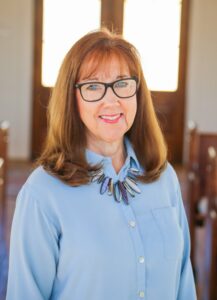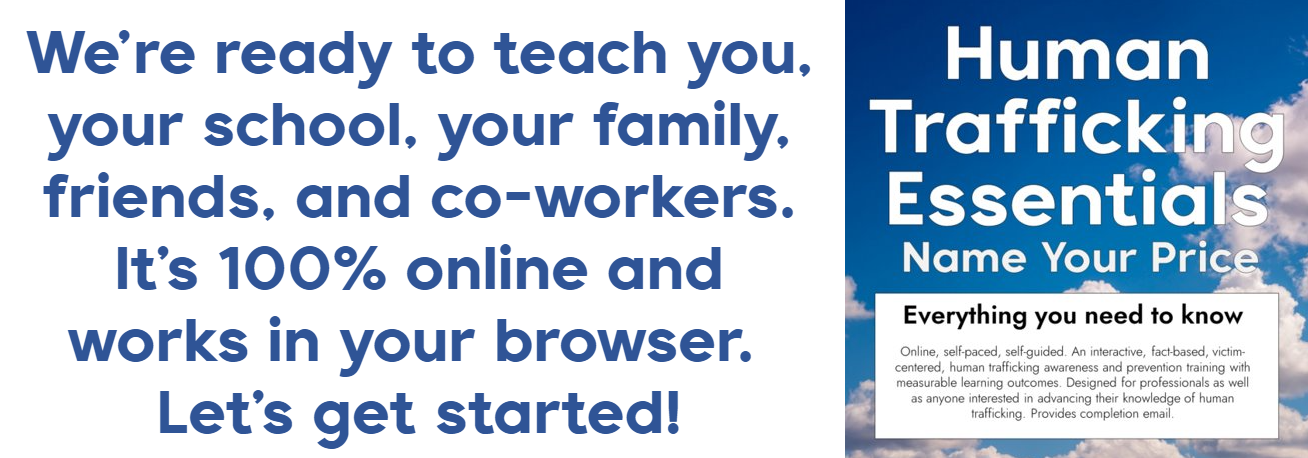Nonprofit leaders address human trafficking realities amid ‘Sound of Freedom’ success | The Alabama Baptist
“Sound of Freedom,” a movie about a mission to rescue children from human trafficking, has become a box office hit.
Touted as based on a true story, the film is the story of Tim Ballard, a former Homeland Security agent and founder of an anti-trafficking organization, Operation Underground Railroad, a nonprofit that exists “to rescue children from sex trafficking and sexual exploitation.”
Many of the multitudes flocking to theaters to see it might wonder if the information portrayed is accurate or fictional, especially since the film has faced some criticism related to its perceived political perspective.
To answer the question of its accuracy, two who work daily in this field — Carolyn Potter, CEO of the WellHouse, and Phaedra Galloway, project manager for Blanket Fort Hope — watched the movie and shared their thoughts with TAB Media.
Not a new issue
Since Potter started working with the WellHouse, she has helped more than 500 adults and children who had been sex trafficked and has worked with countless others in her journey to the WellHouse, she said.

Potter said she feels that the message in “Sound of Freedom” is an accurate portrayal of international trafficking, with buyers traveling from other countries.
“The truth is that child sex trafficking is happening locally, nationally and internationally. It has grown as populations have grown, and the evolution of the internet has made it even more accessible. But the truth is, this is an issue that is not new, and it is every bit as egregious as portrayed in the movie, although it looks different here in the U.S. where we serve,” Potter said.
Galloway also said that the message the movie communicates is “on target based on the human trafficking training provided by Blanket Fort Hope and hearing from frontline professionals during various trafficking summits and conferences.”
Before she started serving at Blanket Fort Hope, Galloway's previous experience with this issue was in Cambodia, where she served at a home for sexually abused girls. Though she isn't that familiar with trafficking's rescue aspect, she has heard interviews of Ballard and said that the movie is in line with what he said.
Both agreed that the movie is raising awareness and bringing the issue to the forefront.
“I can tell you our phones are ringing off the hook, so to speak, from viewers who were moved and want to do something to stop this depraved slavery of children,” Galloway said. “Some had no idea this was happening.”
Differences
While the film focuses on sex trafficking in Columbia, it has also given a chance to share what trafficking looks like in the U.S.
Potter mentioned an example of how trafficking works differently in the U.S. than is portrayed in the movie, citing the “many children who are crossing our southern border and disappearing into the interior of the United States. There seem to be few answers as to where they are and, no doubt, many are being labor and sex trafficked.”
Though the movie helps move those who don't believe trafficking is real into becoming part of the fight, it's not without flaws.
“People need to be educated about how trafficking looks in their communities, to include being aware that it is indeed happening,” Potter said. “But on the other hand, just as there was exaggeration for effect in the movie, we also must be aware that it is harmful to the movement for people to inflate numbers and overdramatize situations to gain support and a following. The truth of this issue is bad enough!”
“I also recognized the frustration of government bureaucracy that can hinder the rescue of children,” Galloway noted. “The government of the people and the Church must rise up to protect God's children. I know that we are on the right side because Scripture tells us that children and the oppressed have a special place in the heart of God.”

Immediately after watching “Sound of Freedom,” both Potter and Galloway had similar thoughts.
Galloway was happy to see this film coming to fruition since she has anticipated its release since seeing the trailer years ago. She was also glad that there was a focus on rescues who had an aftercare partner, such as Blanket Fort Hope's restoration home, currently under construction.
Potter agreed.
“Because I have worked in this field for so many years, nothing surprises me, so I was not disturbed as many have been.
“But my thoughts have more recently gone to thinking about how abundantly God has blessed the WellHouse and feeling grateful that He has called me to have a role in this work. He has shown me many times that it is not about me, but that His love for the oppressed is why I am here,” Potter said.
“I drive onto this amazing campus day after day and marvel at what He has allowed us to accomplish, and I know that restoration is indeed possible even in the most dire and hopeless of situations.”
The WellHouse has been helping adult survivors for 13 years and opened a shelter for child survivors — the WellHouse Child — in 2022. Blanket Fort Hope was founded in 2015 and is currently building a restoration home, also for child survivors.
To learn more about “Sound of Freedom,” click here. To learn how to host it in churches or community centers, go to this site.
Both the WellHouse and Blanket Fort Hope provide education and training to churches, community groups and professionals who want to learn more about helping with this fight. To find out more, go to their websites, visit the WellHouse and Blanket Fort Hope online.
This “Eyes on Trafficking” story is reprinted from its original online location.
Fair Use Notice: The PBJ Learning Knowledge Vault is dedicated to advancing understanding of various social justice issues, including human trafficking and related topics. Some of the material presented on this website may contain copyrighted material, the use of which has not always been specifically authorized by the copyright owner. We are making such material available in our efforts to promote education and awareness of these important issues. There is no other central database we are aware of, so we put this together for both historical and research purposes. Articles are categorized and tagged for ease of use. We believe that this constitutes a ‘fair use' of any such copyrighted material as provided for in section 107 of the US Copyright Law. In accordance with Title 17 U.S.C. Section 107, the material on this site is distributed without profit to those who have expressed a prior interest in receiving the included information for research and educational purposes. For more information on fair use, please visit: “17 U.S. Code § 107 – Limitations on exclusive rights” on Cornell Law School's Legal Information Institute.
 ABOUT PBJ LEARNING
ABOUT PBJ LEARNING
PBJ Learning is a leading provider of online human trafficking training, focusing on awareness and prevention education. Their interactive Human Trafficking Essentials online course is used worldwide to educate professionals and individuals how to recognize human trafficking and how to respond to potential victims. Learn on any web browser (even your mobile phone) at any time.
More stories like this can be found in your PBJ Learning Knowledge Vault.
EYES ON TRAFFICKING
This “Eyes on Trafficking” story is reprinted from its original online location.
ABOUT PBJ LEARNING
PBJ Learning is a leading provider of online human trafficking training, focusing on awareness and prevention education. Their interactive Human Trafficking Essentials online course is used worldwide to educate professionals and individuals how to recognize human trafficking and how to respond to potential victims. Learn on any web browser (even your mobile phone) at any time.
More stories like this can be found in your PBJ Learning Knowledge Vault.

